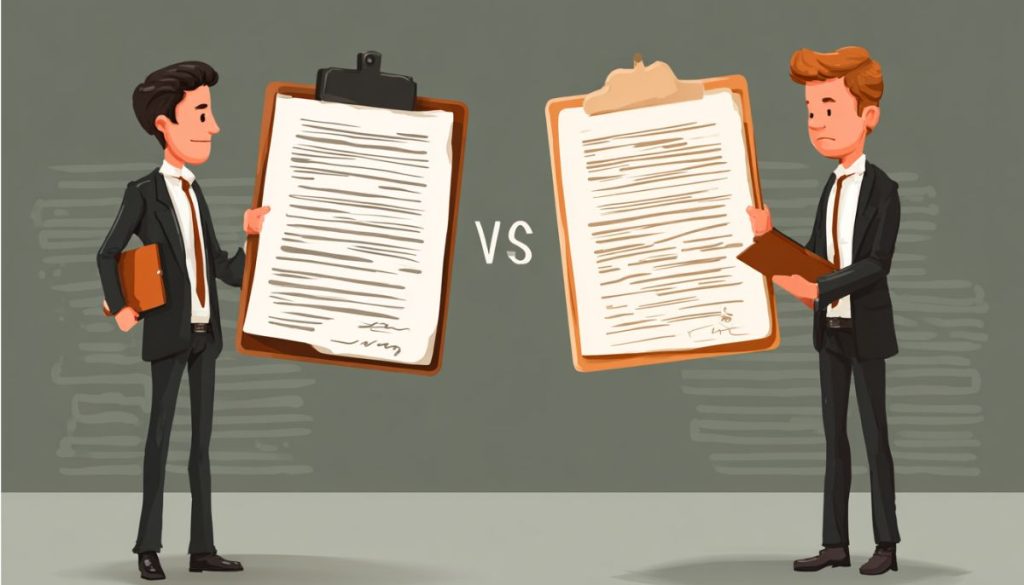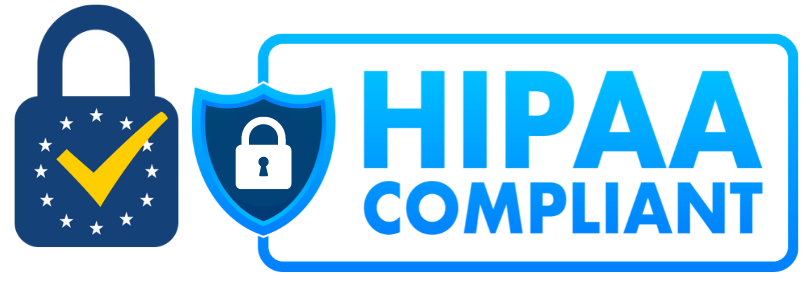5 diferencias clave entre contratos y acuerdos
Ever wondered about the difference between a contract and an agreement? Although people often use these terms interchangeably, in law, they don’t always mean the same thing. Knowing where they diverge can protect you from misunderstandings, legal risks, and costly mistakes.
Whether you’re signing a freelance deal, a service arrangement, or a business partnership, understanding what is the difference between an agreement and a contract gives you leverage and confidence.
In this guide, we’ll unpack the five key differences between contracts and agreements, explain why they matter, and show you how to choose the right document for every situation.
1. Understanding the Core Difference
At its heart, the difference between a contract and an agreement lies in enforceability. An agreement is simply a shared understanding, a “meeting of the minds.” A contract, on the other hand, is an agreement strengthened by legal requirements, making it binding in court.
Picture two friends agreeing to swap lunch versus signing a written catering deal: one is casual, the other carries legal weight. Knowing this distinction helps you decide whether you need an informal handshake or a document with legal teeth to protect everyone’s interests.
2. Formality and Structure
A contract is rarely accidental. It’s carefully drafted, signed, and supported by elements such as consideration, legality, and capacity. Agreements can be looser, often oral or even implied by behavior. That casual promise to share project resources? Likely just an agreement.
But once you specify timelines, payment, and penalties, it becomes a contract. This shift from casual to formal sets expectations and limits disputes. If you’re unsure whether to write things down, consider the stakes.
When money, confidentiality, or liability is on the line, a formal contract is almost always the wiser choice.

3. Enforceability and Legal Protection
The most noticeable distinction between a contract and an agreement is probably the possibility to enforce it in court. Contracts do not have any assurances of redress; they depend on goodwill or trust. However, a contract has weight, as in case either of the parties violates the contract, the other party may seek compensation or specific performance.
This is the reason why companies, independent workers, and property holders like contracts when it comes to important transactions. Even the simplest of service arrangements, like web design or home repairs, have the advantage of clear, enforceable terms.
You can find it difficult to assert your rights in case of something wrong without them.
4. Examples in Everyday Life
The concept can be more easily understood with real-life examples. Purchasing coffee upon settling the price is an agreement in and of itself, and your receipt is also a piece of evidence of a contract. Renting an apartment? It is a typical contract, which specifies rent, deposits, and regulations.
Contracting a photographer to shoot a wedding may begin as a contract through email, but once a document is signed with the date, deliverables, and fees, then it is a contract. Since NDAs may give rise to freelance bills, it is important to be aware of contracts emerging out of agreements so that you can secure interests at any level.

5. When an Agreement Becomes a Contract
Then what is the distinction between an agreement and a contract as practiced? It is all about ingredients. An agreement that is to be a contract must satisfy legal requirements, which include the offer, acceptance, awareness, capacity, consideration, and legality.
The absence of any of these statements, no obvious proposal or promise, made under the influence of intoxication, cannot serve its purpose. That is why vague promises are dismissed by courts, but deals with clear terms and signatures are supported.
Ever wonder why you think you need a contract when you are just working on a mere agreement? It only makes sense to ask yourself whether or not a situation exists that requires a contract.
Preguntas frecuentes
What are the differences between contract and agreement?
An agreement is when two or more people promise to do something together. A contract is an agreement that the law will protect if someone breaks it. All contracts are agreements, but not all agreements become contracts. A contract needs clear rules so both sides know what to expect.
What are the 5 characteristics of contracts and explain each?
Contracts have five main parts. An offer means one side makes a clear promise. Acceptance is when the other side agrees. Consideration is something valuable, like money or services, exchanged. Capacity means both people understand what they’re signing. Legality means the deal must follow the law.
What are the 5 C’s of a contract?
The 5 C’s make a contract easy to follow: Clarity (the words are simple and clear), Completeness (all details are written), Consistency (no parts fight each other), Compliance (it follows the law), and Consequences (it explains what happens if someone breaks it). These help keep everyone safe and secure.
What are the 5 key elements of a contract?
The main pieces of a contract are Offer, Acceptance, Consideration, Capacity, and Legality. First, one side makes an offer. The other side accepts it. Both give something of value (consideration). Each person must understand and agree (capacity). Finally, the promise must be legal.
What are the 5 essentials of a valid contract?
For a contract to count, it needs five things: a clear offer, an acceptance, consideration (something given or received), the capacity to agree, and legality (the deal follows the law). If even one is missing, the contract may not hold up in court.
Reflexiones finales
Knowing the difference between a contract and an agreement helps you make smarter choices. Agreements are great when you just need a friendly promise. Contracts are safer when you want clear rules that the law will support.
If your deal involves money, deadlines, or privacy, writing a contract is the best way to stay protected. Tools like AiSign make it easy to create, send, and sign contracts online. You can build strong documents in minutes and keep everything safe in one place.
Whether you’re a student, freelancer, or business owner, clear contracts help everyone work together with confidence.
Pruebe AiSign gratis durante 30 días, sin tarjeta de crédito
Experimente la facilidad y la eficiencia en la gestión de los contratos de su empresa. Nuestra plataforma te permite crear contratos con herramientas basadas en IA, enviar y firmar documentos en líneay mucho más. Diga adiós a las complejidades del papeleo y disfrute de flujos de trabajo optimizados. Las herramientas de AiSign están diseñadas para autónomos, pequeñas empresas y grandes corporaciones. Regístrese hoy mismo para una prueba gratuita de 30 días.

Sobre el autor
Julie Fortuna es una talentosa escritora de AiSign, especializada en simplificar ideas complejas. Con un don para la comunicación clara y atractiva, Julie ayuda a los lectores a entender las últimas estrategias y tendencias.





